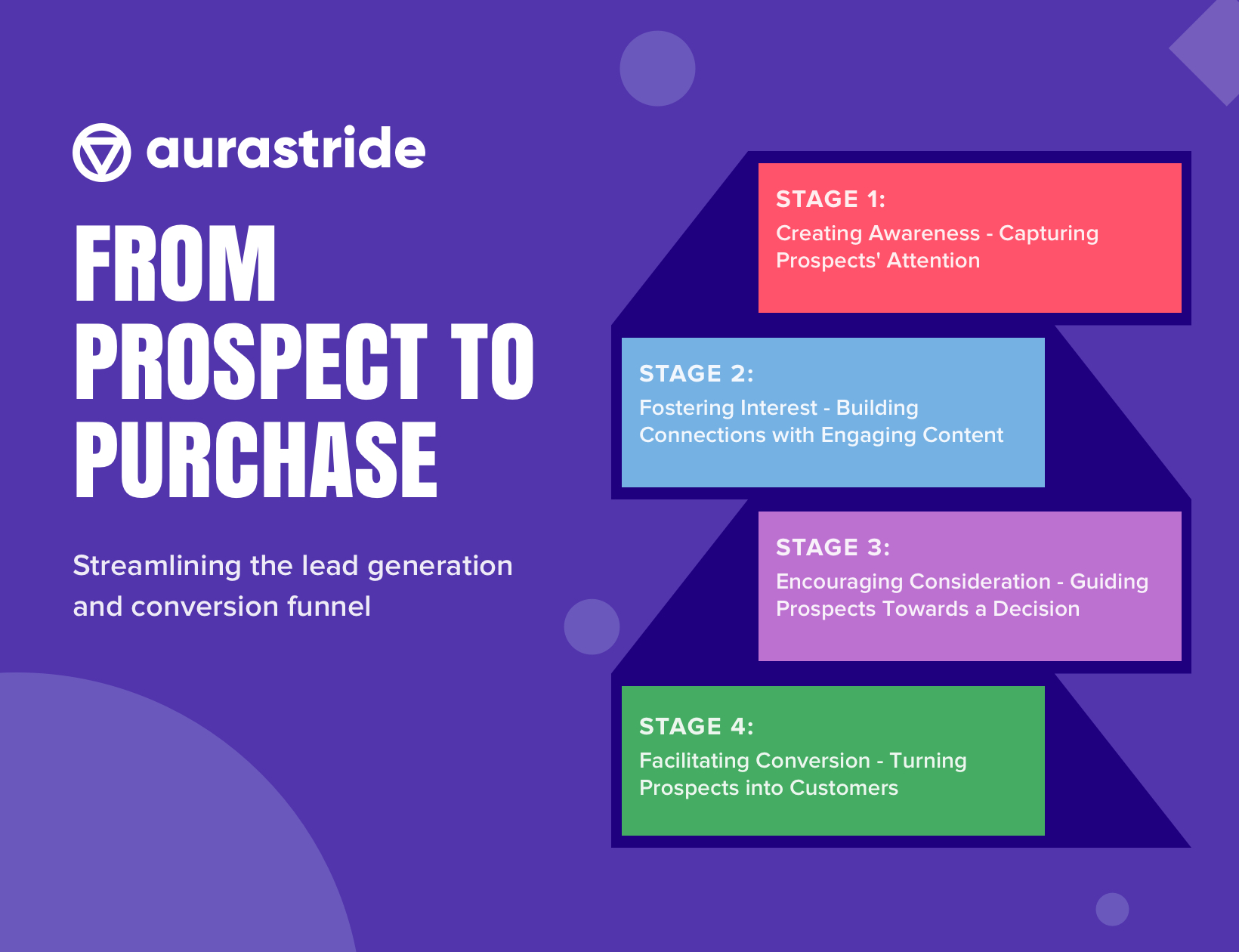Data-driven insights for better decisions: How a CRM empowers your sales team

The fast-moving business world is observing that availability of appropriate data to make decisions is a necessity. Customer Relationship Management (CRM) software makes it possible for the businesses to gather lots of data about customers and analyse it to help them sell better. Whether you are a small business owner or a sales executive at a large corporation, connecting the power of data through a CRM can solve new levels of success.
This article explores the benefits of using a CRM for data-driven decision making and how it can improve sales outcomes.

The importance of data-driven decision making in sales
Data-driven decision making is essential in sales for several reasons. Firstly, by utilising a CRM, sales teams can gain valuable insights into customer behaviour, preferences, and buying patterns. This information can then be used to tailor sales strategies and pitches to specific customer needs, increasing the chances of success.
Secondly, data-driven decision making allows sales teams to identify trends and patterns in their sales process. By analysing data on lead generation, conversion rates, and customer interactions, sales managers can pinpoint areas for improvement and implement targeted changes to boost sales performance.
Data-driven decision making provides sales teams with a competitive edge. By leveraging data, sales teams can identify untapped market opportunities, optimise pricing strategies, and refine their sales techniques.
Indeed, data-driven decision making is crucial in sales as it enables businesses to better understand customers, improve the efficiency of their sales process, and stay ahead of the competition. By connecting the power of a CRM, businesses can explore the full potential of their sales data and make better-informed decisions for greater success.
Introducing the CRM: A powerful tool for managing and analysing data
Now that we understand the importance of data-driven decision making in sales, let us delve into the world of Customer Relationship Management (CRM) systems. A CRM is a software tool that helps businesses efficiently manage and analyse their customer data. It acts as a central hub for storing vital customer information, such as contact details, purchase history, and interaction records.
With a CRM in place, sales teams can easily access and analyse this data, gaining valuable insights into customer behaviour and preferences. By tracking customer interactions and buying patterns, they can identify potential leads, nurture relationships, and personalise their sales approach accordingly.
Furthermore, a CRM enables sales managers to track team performance and monitor sales metrics in real-time. They can generate customised reports and dashboards that provide a comprehensive overview of their sales pipeline, conversion rates, and other important metrics. This data-driven approach allows managers to proactively identify areas for improvement and make informed decisions to optimise sales efforts.
Key features and benefits of a CRM for sales teams
A CRM system offers a wide range of features and benefits that can greatly enhance the sales process. Let us take a closer look at some of the key aspects that make CRM an invaluable tool for sales teams.
- Centralised Data Storage
- Improved Lead Management
- Enhanced Sales Forecasting
- Efficient Task Management
- Advanced Analytics and Reporting
A CRM serves as a central repository for all customer information, ensuring that data is easily accessible to the entire sales team. This eliminates the need for multiple spreadsheets or siloed systems and allows for more efficient collaboration and communication.
With a CRM, sales teams can effectively manage leads through features like lead scoring, automated lead assignment, and lead tracking. This ensures that leads are prioritised, assigned to the right salesperson, and followed up on in a timely manner.
CRMs provide accurate and up-to-date sales data, allowing sales managers to forecast future sales with greater precision. This enables better resource allocation, sales planning, and revenue projections.
With CRM’s task management capabilities, sales teams can priorities, track, and manage their tasks and activities in one place. This helps them stay organised, meet deadlines, and ultimately close more deals.
A CRM enables sales teams to generate detailed reports and analytics on various sales metrics, such as revenue forecasts, conversion rates, and sales cycle duration. These insights empower sales managers to identify trends, measure performance, and make data-driven decisions to optimise sales efforts.
Revealing success with data-driven sales decisions
Key features and benefits of a CRM for sales teams have been discussed in the previous section. Now, let us delve deeper into how data-driven sales decisions can unlock success for your team.
- Personalised Customer Interactions
- Efficient Sales Pipeline Management
- Streamlined Communication
- Sales Performance Tracking
- Integration with Other Systems
A CRM system provides comprehensive customer profiles with detailed information on their preferences, purchase history, and communication history. This data allows sales teams to tailor their interactions and offers to each customer, improving the overall customer experience and increasing the chances of a successful sale.
With CRM, sales teams can visualise and manage their sales pipeline more effectively. By tracking the progress of each deal, identifying bottlenecks, and strategising accordingly, sales professionals can proactively move deals forward and ensure a steady revenue flow.
CRM systems offer communication tools that consolidate interactions through various channels, such as phone calls, emails, and social media. This streamlines communication within the sales team and with customers, fostering collaboration, and ensuring that no leads or opportunities fall through the cracks.
CRM provides real-time insights into the performance of individual sales team members, enabling managers to identify strengths, weaknesses, and areas for improvement. This allows for targeted coaching and training, leading to continuous growth and improved sales outcomes.
Many CRM solutions offer seamless integration with other tools, such as marketing automation, email marketing, and customer support systems. This integration streamlines workflows, increases efficiency, and ensures a consistent customer experience across multiple touchpoints.
By adding the power of data through a CRM system, sales teams can make more informed decisions, enhance productivity, and ultimately unlock success.
Real-life examples of how CRM has transformed sales processes
The real-time incidences highlight the practical benefits and outcomes that can be achieved by connecting the power of data through a CRM system.
One such instance is a telecommunications company that implemented a CRM to improve its sales team’s productivity and customer satisfaction. By utilising the comprehensive customer profiles and data-driven insights provided by the CRM, the sales team was able to personalise their interactions and offers, resulting in increased customer engagement and higher conversion rates. The CRM also enabled efficient sales pipeline management, allowing the team to identify bottlenecks and take proactive steps to move deals forward, ultimately leading to a significant increase in revenue.
Another instance comes from the retail sector, where a clothing brand integrated their CRM system with their marketing automation and customer support systems. This integration not only streamlined communication within the sales team but also ensured a consistent customer experience across multiple touchpoints. By leveraging the data captured in the CRM, the sales team was able to effectively target and engage with their customers, resulting in improved customer satisfaction and loyalty.
These examples highlight just a few of the many ways CRM systems have transformed sales processes and unlocked success for businesses.
Choosing the right CRM for your business needs
To leverage the power of data for better sales decisions, it is crucial to choose the right CRM system that aligns with your business needs. With a wide range of options available in the market, it can be overwhelming to make the right decision. However, by following a few best practices, you can ensure that you select a CRM system that will truly unlock success for your business.
First and foremost, it is important to clearly define your business requirements and objectives. This will help you understand what features and functionalities are essential in a CRM system. Consider factors such as scalability, customisation options, integration capabilities, and user-friendliness.
Additionally, it is recommended to conduct thorough research and compare different CRM systems. Look for customer reviews and testimonials, as well as case studies of businesses like yours that have successfully implemented the CRM you are considering.
Furthermore, it is beneficial to involve key stakeholders from various departments in the decision-making process. This will help ensure that the chosen CRM system meets the needs of different teams, such as sales, marketing, and customer support.
Finally, we cannot ignore to consider the total cost of ownership, including licensing fees, implementation costs, training expenses, and ongoing support and maintenance fees. This will give you a clear understanding of the financial commitment involved in adopting a CRM system.
By following these best practices, you can choose a CRM system that will empower your sales team with the right tools and insights to make data-driven decisions.
Implementation and training for seamless integration
Once you have chosen the CRM system that aligns with your business needs, it is time to focus on the implementation process. Implementing a CRM system requires careful planning and execution to ensure a seamless integration with your existing systems and processes.
Start by forming a project team with representatives from different departments, including sales, marketing, customer support, and IT. This cross-functional team will play a crucial role in overseeing the implementation process and ensuring that all stakeholders are involved.
Next, create a detailed implementation plan that outlines the key milestones, tasks, and timelines. This will help you stay organised and track progress throughout the implementation process. It is important to set realistic expectations and allocate sufficient time and resources for each phase of the implementation.
Consider conducting a data cleanup before migrating existing data into the CRM system. This will help ensure the accuracy and cleanliness of your data, which is essential for making informed sales decisions. Additionally, provide training sessions for your team to familiarise them with the new CRM system and its features. This will help them adapt quickly and maximise the benefits of the system.
Lastly, monitor the implementation progress closely and address any issues or challenges that arise. Regularly communicate with your team and gather feedback to identify areas of improvement. By taking a proactive approach and continuously refining the implementation process, you can ensure a successful CRM rollout and maximise the value of your investment.
Maximising the power of your CRM: Best practices for data management and analysis
First and foremost, ensure that your data is accurate and up to date. Regularly clean and maintain your data to eliminate duplicates, errors, and outdated information. This will ensure that the reports and analytics generated from your CRM system are reliable and actionable.
Next, take advantage of the different data analysis features and tools available within your CRM system. These include dashboards, reports, and customisable analytics. Explore how these features can be tailored to your business needs and objectives. Use them to track key performance indicators, sales metrics, and customer segmentation. By leveraging these tools, you can gain insights into your sales pipeline, identify areas for improvement, and make data-driven decisions.
Additionally, consider integrating your CRM system with other data sources, such as social media platforms, marketing automation tools, and customer survey data. This will allow you to gather a more comprehensive view of your customers and their interactions with your business. Analysing this integrated data can help you identify buying patterns, preferences, and opportunities for cross-selling or upselling.
It is also essential to empower your sales team with the necessary training and resources to interpret and use the data effectively. Providing ongoing training sessions on data analysis and interpretation will enable your team to leverage the CRM system to its full potential.
Lastly, regularly review and analyse the data generated by your CRM system. Set aside time to review reports, identify patterns, and draw conclusions. This will help you measure the success of your sales strategies and identify areas for improvement.
Wrapping up: Leverage the power of data for better sales decisions with CRM
Now that we have explored the best practices for data management and analysis within your CRM system, it is time to wrap up our discussion on connecting the power of data for better sales decisions.
Embracing the power of data with a CRM system can revolutionise your sales operations. By ensuring the accuracy and cleanliness of your data, you can generate reliable reports and actionable insights. Leveraging the data analysis features and tools available within your CRM system allows you to track key performance indicators, identify areas for improvement, and make data-driven decisions.
Integrating your CRM system with other data sources provides a comprehensive view of your customers, enabling you to identify buying patterns, preferences, and opportunities for cross-selling or upselling. Furthermore, empowering your sales team with training on data analysis and interpretation ensures they can leverage the CRM system to its full potential.
Regularly reviewing and analysing the data generated by your CRM system provides the opportunity to measure the success of your sales strategies and identify areas for improvement.
In conclusion, leveraging the power of data with a CRM system is crucial for making better sales decisions. By embracing this approach and consistently analysing the insights it provides, you can personalise customer interactions and enhance your sales efforts.



